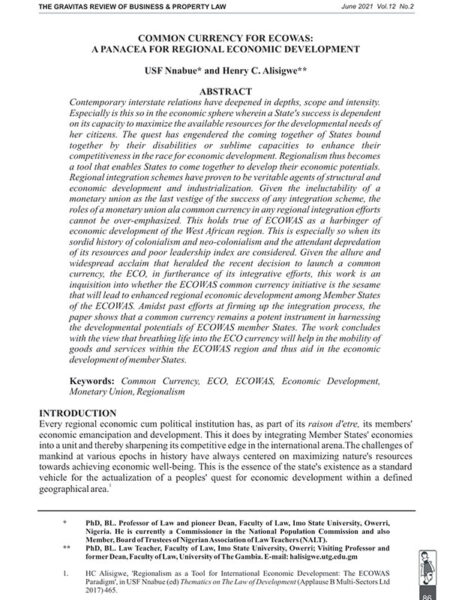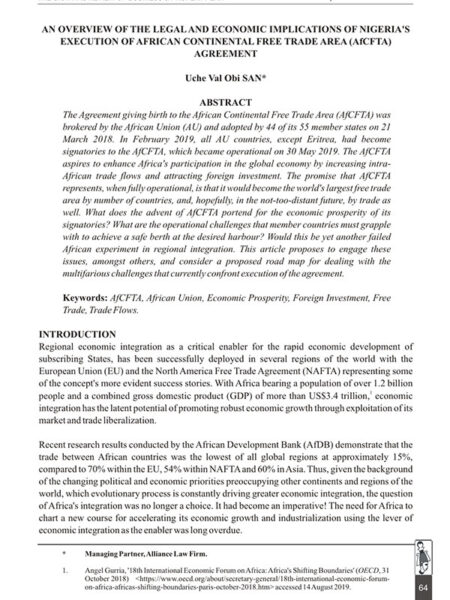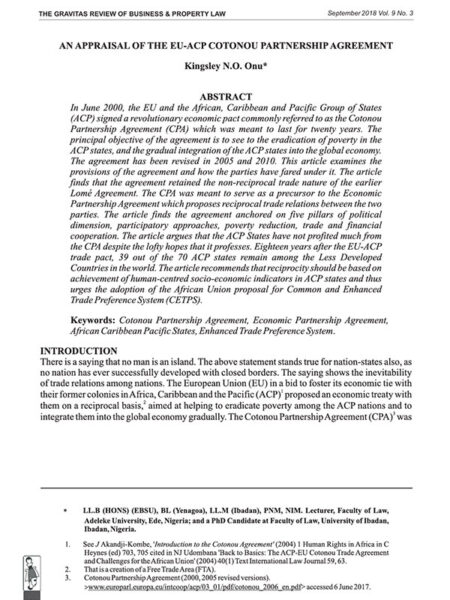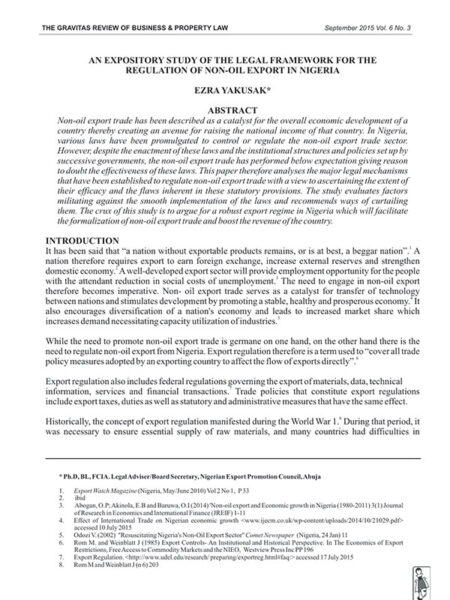-

Common Currency for ECOWAS: A Panacea for Regional Economic Development
0₦2,500.00Professor USF Nnabue, pioneer Dean, Faculty of Law, Imo State University and currently a Commissioner in the National Population Commission and Professor Henry Alisigwe of the Faculty of Law, Imo State University Owerri Nigeria, in their article, Common Currency for ECOWAS: A Panacea for Regional Economic Development, note the widespread acclaim that heralded the recent decision to launch a common currency, the ECO, in furtherance of the integrative efforts of the Economic Community of West African States (ECOWAS). They interrogate whether the common currency initiative is the sesame that will lead to enhanced regional economic development among member States of the ECOWAS. They argue that a common currency remains a potent instrument in harnessing the developmental potentials of ECOWAS member States and conclude that breathing life into the ECO currency will help in the mobility of goods and services within the ECOWAS region.
-

An Overview of the Legal and Economic Implications of Nigeria’s Execution of the African Continental Free Trade Area (AfCFTA) Agreement
0₦2,500.00Uche Val Obi SAN of Alliance Law Firm Lagos Nigeria, in his article, An Overview of the Legal and Economic Implications of Ngeria’s Execution of the African Continental Free Trade Area (AfCFTA) Agreement comprehensively reviews the AfCFTA Agreement brokered by the African Union and adopted by 44 of its 55 member states on 21 March 2018. The AfCFTA aspires to enhance Africa’s participation in the global economy by increasing intra-African trade flows and attracting foreign investment. The promise that AfCFTA represents, when fully operational, is that it would become the world’s largest free trade area by the number of countries, and in the not-too-distant future, by trade as well. Val Obi SAN examines what AfCFTA portends for the economic prosperity of its signatories and the operational challenges that member countries must grapple with to achieve a safe berth at the desired harbour. He proposes a road map for dealing with the multifarious challenges that currently confront the agreement.
-

An Appraisal of the EU-ACP Cotonou Partnership Agreement
0₦2,500.00Kingsley Onu, Lecturer, Faculty of Law, Adeleke University, Ede in his article An Appraisal of the EU-ACP Cotonou Partnership Agreement, examines the provisions of the CPA signed in June 2000 in Cotonou between the European Union and the African, Caribbean and Pacific Group of States (ACP) and the Revisions of 2005 and 2010. He notes that the principal objective of the agreement is the eradication of poverty in the ACP states and their integration into the global economy. He argues that the goals have not been met as 39 out of the 70 ACP states remain among the Less Developed Countries (LDCs) in the world. He advocates for cooperation and reciprocity between EU and ACP based on human-centred socio-economic indicators, and recommends the adoption of the African Union proposal for Common and Enhanced Trade Preference System (CETPS).
-

An Expository Study of the Legal Framework for the Regulations of Non-Oil Export in Nigeria
0₦2,500.00Dr. Ezra Yakusak, Legal Adviser/Board Secretary of the Nigerian Export Promotion Council in “An Expository Study of the Legal Framework for the Regulation of Non-Oil Export in Nigeria” examines the gamut of laws regulating non-oil export in Nigeria highlighting the contradictions and lacuna in some of them.
The Gravitas Review of Business & Property Law



